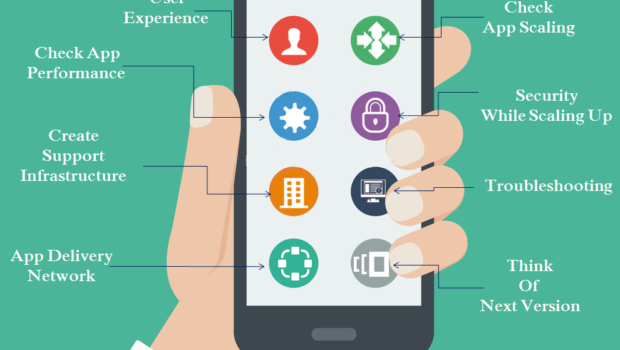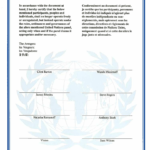Important Considerations While Creating Mobile App
The mobile application market is developing in leaps and bounds. Go to the App Store or Google Play, and you will be shocked by the abundance of software products. Here are some important things to consider before developing a mobile application.
1. Market research before development
Before developing your mobile application, conduct comprehensive market research. Try to get an idea of the target audience and competition.
It is important to know everything about your potential customers; their geographical location, gender, profession, age, income, preferences, desires, fears and pain points.
Do a SWOT analysis of your competitors’ products. Learn from the mistakes of others and read customers reviews. This will give you an idea of what people value or hate in a particular mobile application. It is better to spend a couple of evenings for analysis than a few months to develop, collect feedback and realize your own short-sightedness!
You will have to innovate and add something fresh to the app – you don’t want to invest thousands of dollars in an outdated concept! To achieve success in the market of mobile applications, you need to follow the trends and give customers more.
Target market research will tell you about the devices that people prefer to use, about browsers, about which social network they visit more often. It helps to decide on a platform – should you develop an application for iOS, Android, or for Windows?
Even if you are targeting multiple platforms, we recommend first releasing the product under one platform. See how it “goes”, take the necessary measures for correction and improvement, and then invest in the development of the following platforms.
2. Planning and monitoring
Mobile app development costs money. To increase the chances of a project’s success, it is necessary to allocate funds for each stage of development right from the start. Keep track of how much money you spend from start to finish.
Remember that when developing a new app, there may be unexpected expenses. Careful planning and monitoring is your key to success.
3. Native or hybrid apps?
Native applications are designed for a specific mobile operating system; for example, Java is used to develop Android applications. They make the most efficient use of the OS functions and device-specific software and hardware of the device (cameras, one-touch pay, GPS).
Hybrid applications are a combination of native and web applications that can be deployed in different operating systems and run in different browsers, such as Safari, IE, or Chrome. Here the emphasis is on the versatility of use to the detriment of specificity.
Obviously, the easiest way is to develop one application and deploy it everywhere without creating multiple versions. Cross-compatible technologies such as Javascript, HTML5 and jQuery, will help the developer to cope with this task on a solid top five.
A universal approach is much cheaper for beginners than developing several native applications for each platform. But the UX will be predictably lower.
4. Planning software and hardware
This area requires important decisions. Currently, most applications are managed by APIs, but each product may not need an individual backend.
Some mobile applications can be completely bypassed by a local database. The decision is made based on factors such as financial expenses, possible delays, etc.
5. Design UI / UX
As it stands, you can’t overlook the effects of UX/UI in apps. In mobile application, good UX means clear calls to action, easy access to information, pleasant visual effects, informative text, clear messages in intelligible fonts, easy navigation, attractive, ease of use. A good application should be aesthetically pleasing, comfortable and useful.
6. Attention to development details
Often we are so keen on looking at the big picture that we forget about the small details that play an enormous role. Here are some details of the development process:
- Ensure that the program does not use too much data. Otherwise, users will use it once, and then try to turn it on as rarely as possible.
- Make sure the application loads quickly. Ask the developer to eliminate the factors that slow down the download (flash animation, excess video, etc.)
- Always respond to user input. If the answer takes time (eg, download), be sure to use a live progress bar.
- Pricing decides. How will you evaluate your product among many competitors? If this application is for purchasing/reserving your services, it is better to provide it for free, since the company will still receive income from it.
7. Interest in the mobile market
The marketing strategy in the current realities completely determines whether you will get a profit from the development or write it on your list of unsuccessful Internet adventures.
Before launching mobile app sales, create interest among your target audience using powerful social networking channels and search advertising.
Curiosity must first appear, and only then the product itself.
Also, ensure that the product’s entry into the market does not conflict with any other major event. Otherwise, the interest of your audience simply dissolves.
Ideally, you should start a campaign 2-3 weeks before the release.
8. Testing mobile applications
It is no secret that some developers are just too short of this time-consuming stage. As a result, apps constantly freeze and display incorrectly. In order not to step on the old rake, you need to be aware of how users will perceive the product.
It should work, and work at 100%; the only way to find out is a comprehensive check. A consistent alpha and beta testing procedure will, based on feedback, not only detect errors, but also make significant improvements to the final version.
9. Description of the software product
Mobile App Store is your showcase. Sales directly depend on a clear and attractive description of the product. Remember that in any store only the first two lines of your description are displayed, so you need to make these lines spectacular.
Does your business need a mobile app?
In a world where people are increasingly browsing and shopping on the go, mobile app is essential for businesses to flourish.
Author Bio:
Melissa Crooks is Content Writer who writes for Hyperlink InfoSystem, a mobile app development company in New York, USA and India that holds the best team of skilled and expert app builders. She is a versatile tech writer and loves exploring latest technology trends, entrepreneur and startup column.

















